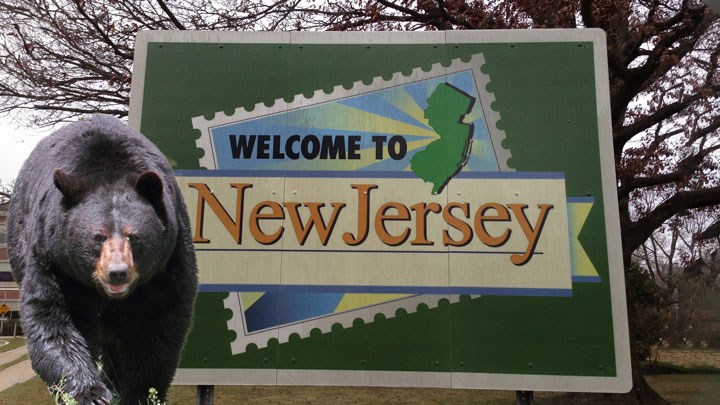
by Cody McLaughlin - Friday, January 13, 2023

New Jersey’s recent black bear season resulted in taking only 114 bears. You read that right. Though the state’s black bear population is among the most dense in all of North America, New Jersey’s extended black bear season in December 2022 yielded just 114 bruins killed for the season. Of course, this begged the non-hunting public to ask what happened, considering bear attacks and encounters are on the rise. It also opened up yet more opportunities for anti-hunters hellbent on convincing and misleading the public to say that exploding black bear populations across the country are not a problem and that issues stemming from human-bear conflicts in the Garden State are a myth.
So why, then, the abysmal numbers? It seemed certain that New Jersey was destined for great bear harvest numbers, right? Yet 144 bears represent only a 7 percent harvest rate, falling short of the goal of 20 percent, according to the state’s Department of Environmental Protection (DEP). The state’s last full bear hunting season was in 2017 when more than 400 bears were killed, representing a 16 percent harvest rate.
Consider the conflicts. A full two years after New Jersey’s controversial hunting ban in 2020, the state’s northwestern counties are so overrun with black bear attacks that local elected officials are up in arms over it. I personally have covered the escalating bear attacks. For just a few recent examples, in early 2022, a black bear killed a person’s dog and bit the owner when she tried to rescue it. Then in May, a woman in Lafayette was attacked by a bear while checking her mail, and another dog was killed over the summer. And readers likely remember reading about the high-profile mauling of a N.J. resident in 2020, who was attacked in his own garage.
To recap, in Early November 2022, in what was hailed (and assailed by animal rights extremists) as a stunning reversal for what many label America’s most anti-hunting governor—N.J. Gov. Phil Murphy—announced during a radio interview that he was reinstating the state’s black bear hunt, supporting the science and citing data on the ever-increasing statewide black bear encounters and attacks and data on the exploding ursine population in suburban New Jersey. “I feel awful,” he said, “but I can’t violate what are obvious facts that are potentially undermining public safety, particularly among kids. I just can’t in good conscience go on in this direction.”
With New Jersey already having a limited hunting season for bears (merely a week, compared to the months of chase other states allow their hunters) the announcement also came incredibly late in the game for hunters who can (and regularly do) spend an entire year preparing to hunt bears, especially given the more limited means of chase allowed by Murphy’s hunt. Whereas N.J. hunters in years past (in keeping with other states’ management practices) have been allowed to pursue bears with methods such as baited sites, Murphy outlawed the practice for this year’s season. Coupled with a bad weather forecast for the week, odds were not in hunters’ favor.
But then came the real whammy. Anti-hunting extremists, led by the litigious former state legislator Ray Lesniak, slapped the state with a frivolous lawsuit claiming, among other things, that it didn’t have the power to institute a bear hunt. Ridiculous, we know. But with an emergency closure instituted by a judge while evidence was reviewed, the last-minute legal challenge threw that much more chaos into the mix and closed the season for the first few days when historically most of the bears are harvested.
About the Author
Cody McLaughlin is a conservationist and conservative thought leader on public policy issues including hunting, fishing, gun rights, free-market tax and wage policy and the environment. He works as a GOP consultant for conservative political causes, managing clients’ digital communications and online presence, serves currently on the board of the Alaska Outdoor Council (the Last Frontier’s State NRA Affiliate) and is a former board member and lead spokesman of the New Jersey Outdoor Alliance, helping to represent the state’s 1.2 million sportsmen in the political arena.
E-mail your comments/questions about this site to:
[email protected]
Proudly supported by The NRA Foundation and Friends of NRA fundraising.
